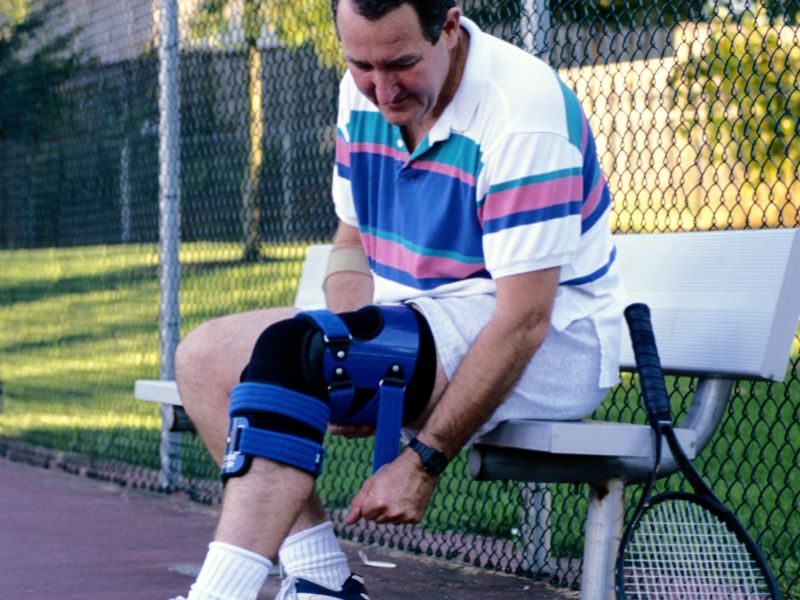

Taking Opioids Before Knee Surgery Could Raise Pain Later
People who took the powerful painkillers pre-procedure had less pain relief later, study findsTuesday, May 23, 2017

TUESDAY, May 23, 2017 (HealthDay News) -- If you're planning on having knee replacement surgery at some point in the future, it's a good idea to start talking to your doctor now about your options for controlling pain.
That's because new research found that when people had taken powerful opioid painkillers before knee replacement surgery, they had greater pain after the procedure.
Knee replacement is used to treat knee osteoarthritis. But patients spend an average of 13 years before surgery using non-surgical treatments such as physical therapy, injections and painkillers, the study authors noted.
"Although each patient case is different, patients and physicians should discuss the potential impact of using opioids in patients with knee osteoarthritis who are likely to consider total knee replacement within the next two years," said lead author Elena Losina. She is co-director of the Orthopaedic and Arthritis Center for Outcomes Research at Brigham and Women's Hospital in Boston.
The research included 156 patients who had total knee replacement. Their average age was 66. Of those patients, 23 percent received at least one opioid prescription before their surgery.
People who used opioids prior to knee replacement had about 9 percent less pain relief six months after surgery, the investigators found.
"With these study results, we'd encourage physicians to consider discussing long-term implications of opioid therapy with their patients," Losina said in a hospital news release.
More than $1.5 billion is spent in the United States each year on prescription opioids for people with knee osteoarthritis, the researchers noted. There has been a steep rise in the use of opioids, with nearly 40 percent of Medicare patients with knee osteoarthritis receiving at least one opioid prescription in 2009.
The study was published May 17 in the Journal of Bone and Joint Surgery.
SOURCE: Brigham and Women's Hospital, news release, May 18, 2017
HealthDay
Copyright (c) 2017 HealthDay. All rights reserved.
News stories are written and provided by HealthDay and do not reflect federal policy, the views of MedlinePlus, the National Library of Medicine, the National Institutes of Health, or the U.S. Department of Health and Human Services.
- More Health News on
- Knee Replacement
- Pain Relievers




























.png)











No hay comentarios:
Publicar un comentario